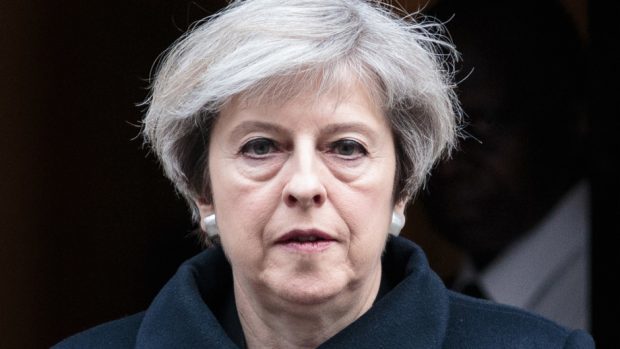Theresa May has warned that failure to reach a deal with the European Union would mean “weakened” cooperation in the fight against crime and terrorism.
The prime minister came under immediate fire for the paragraph in her official letter, triggering Article 50, amid claims she was using security as a “bargaining chip”.
Liberal Democrat leader, Tim Farron, called the “lumping together” of references to security cooperation and trade a “blatant threat” that was “utterly scandalous”.
Labour’s Yvette Cooper also hit out at the Tory leader and urged her to rule out walking away without an agreement on the issue.
She added: “This is not a threat to the rest of Europe, it would be a serious act of self-harm.”
Her colleague Stephen Kinnock asked: “Is the prime minister really saying the security of our country will be traded like a bargaining chip in these negotiations?”
But Mrs May insisted her government was not going to be trading away the UK’s security.
Her spokesman added: “It is a simple statement of fact … if we leave without a deal, the arrangements we have will lapse.”
In her letter to European Council president, Donald Tusk, the prime minister wrote: “The UK wants to agree with the EU a deep and special partnership that takes in both economic and security cooperation.
“To achieve this, we believe it is necessary to agree the terms of our future partnership alongside those of our withdrawal from the EU.
“If, however, we leave the EU without an agreement, the default position is that we would have to trade on World Trade Organisation terms.
“In security terms, a failure to reach agreement would mean our cooperation in the fight against crime and terrorism would be weakened.”
Mrs May then wrote that both sides “would of course cope” with this kind of scenario.
But she added: “It is not the outcome either side should seek. We must therefore work hard to avoid that outcome.”
The UK has highly-regarded intelligence agencies and is one of the main military powers in Europe, meaning its cooperation on security issues is valued in the EU.
Meanwhile, the letter also insisted the UK’s vote for Brexit was “no rejection of the values we share as fellow Europeans”.
It described the task ahead as “momentous” but added: “It should not be beyond us.”
